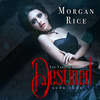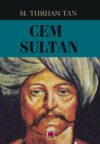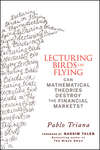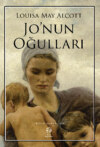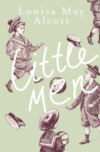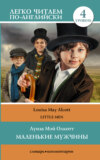Kitabı oku: «Comic Tragedies»
"It was at this period of her life that she was violently attacked by a mania for the stage, and writing and enacting dramas. Her older sister, Anna, had the same taste, and assisted her in carrying out all her plans."
Mrs. Cheney's Life of Louisa M. Alcott.
A FOREWORD BY MEG
In the good old times, when "Little Women" worked and played together, the big garret was the scene of many dramatic revels. After a long day of teaching, sewing, and "helping mother," the greatest delight of the girls was to transform themselves into queens, knights, and cavaliers of high degree, and ascend into a world of fancy and romance. Cinderella's godmother waved her wand, and the dismal room became a fairy-land. Flowers bloomed, forests arose, music sounded, and lovers exchanged their vows by moonlight. Nothing was too ambitious to attempt; armor, gondolas, harps, towers, and palaces grew as if by magic, and wonderful scenes of valor and devotion were enacted before admiring audiences.
Jo, of course, played the villains, ghosts, bandits, and disdainful queens; for her tragedy-loving soul delighted in the lurid parts, and no drama was perfect in her eyes without a touch of the demonic or supernatural. Meg loved the sentimental rôles, the tender maiden with the airy robes and flowing locks, who made impossible sacrifices for ideal lovers, or the cavalier, singing soft serenades and performing lofty acts of gallantry and prowess. Amy was the fairy sprite, while Beth enacted the page or messenger when the scene required their aid.
But the most surprising part of the performance was the length of the cast and the size of the company; for Jo and Meg usually acted the whole play, each often assuming five or six characters, and with rapid change of dress becoming, in one scene, a witch, a soldier, a beauteous lady, and a haughty noble. This peculiar arrangement accounts for many queer devices, and the somewhat singular fact that each scene offers but two actors, who vanish and reappear at most inopportune moments, and in a great variety of costume. Long speeches were introduced to allow a ruffian to become a priest, or a lovely damsel to disguise herself in the garb of a sorceress; while great skill was required to preserve the illusion, and astonish the audience by these wonderful transformations.
The young amateur of to-day, who can easily call to her aid all the arts of the costumer and scene-maker, will find it hard to understand the difficulties of this little company; for not only did they compose their plays, but they were also their own carpenters, scene-painters, property-men, dress-makers, and managers. In place of a well-appointed stage, with the brilliant lights and inspiring accessories of a mimic theatre, the "Little Women" had a gloomy garret or empty barn, and were obliged to exercise all their ingenuity to present the scenes of their ambitious dramas.
But it is surprising what fine effects can be produced with old sheets, bright draperies, and a judicious arrangement of lights, garlands, and picturesque properties; and Jo's dramatic taste made her an admirable stage-manager. Meg was especially handy with saw and hammer, and acted as stage-carpenter, – building balconies, thrones, boats, and towers after peculiar designs of her own. Bureaus, tables, and chairs, piled aloft and arched with dark shawls, made dungeon walls and witch's cave, or formed a background for haunted forest and lonely glen. Screens of white cloth furnished canvas on which little Amy's skilful hand depicted palace halls, or romantic scene for lovers' tryst; and Beth's deft fingers were most apt in constructing properties for stage adornment, and transforming the frailest material into dazzling raiment. For the costumes were a serious consideration. No money could be spared from the slender purse to supply the wardrobes of these aspiring actors, and many were the devices to clothe the little company.
Thus a robe in one scene became a cloak in the next, and the drapery of a couch in the third; while a bit of lace served as mantle, veil, or turban, as best suited the turn of the play. Hats covered with old velvet, and adorned with feathers plucked from the duster, made most effective headgear for gay cavalier or tragic villain. From colored cotton were manufactured fine Greek tunics and flowing trains; and remarkable court costumes were evolved from an old sofa-covering, which had seen better days, and boasted a little gold thread and embroidery.
Stars of tin, sewed upon dark cambric, made a suit of shining armor. Sandals were cut from old boots. Strips of wood and silver paper were fashioned into daggers, swords, and spears, while from cardboard were created helmets, harps, guitars, and antique lamps, that were considered masterpieces of stage art.
Everything available was pressed into service; colored paper, odds and ends of ribbon, even tin cans and their bright wrappings were treasures to the young actors, and all reappeared as splendid properties.
At first a store of red curtains, some faded brocades, and ancient shawls comprised the stage wardrobe; but as the fame of the performances spread abroad, contributions were made to the little stock, and the girls became the proud possessors of a velvet robe, a plumed hat adorned with silver, long yellow boots, and a quantity of mock pearls and tinsel ornaments.
Such wealth determined them to write a play which should surpass all former efforts, give Jo a chance to stalk haughtily upon the stage in the magnificent boots, and Meg to appear in gorgeous train and diadem of jewels.
"The Witch's Curse" was the result, and it was produced with astounding effect, quite paralyzing the audience by its splendid gloom. Jo called it the "lurid drama," and always considered it her masterpiece. But it cost hours of thought and labor; for to construct a dungeon, a haunted chamber, a cavern, and a lonely forest taxed to the uttermost the ingenuity of the actors. To introduce into one short scene a bandit, two cavaliers, a witch, and a fairy spirit – all enacted by two people – required some skill, and lightning change of costume. To call up the ghostly visions and mysterious voices which should appall the guilty Count Rodolpho, was a task of no small difficulty. But inspired by the desire to outshine themselves, the children accomplished a play full of revenge, jealousy, murder, and sorcery, of all which indeed they knew nothing but the name.
Hitherto their dramas had been of the most sentimental description, given to the portrayal of woman's devotion, filial affection, heroism, and self-sacrifice. Indeed, these "Comic Tragedies" with their highflown romance and fantastic ideas of love and honor, are most characteristic of the young girls whose lives were singularly free from the experiences of many maidens of their age.
Of the world they knew nothing; lovers were ideal beings, clothed with all the beauty of their innocent imaginations. Love was a blissful dream; constancy, truth, courage, and virtue quite every-day affairs of life. Their few novels furnished the romantic element; the favorite fairy-tales gave them material for the supernatural; and their strong dramatic taste enabled them to infuse both fire and pathos into their absurd situations.
Jo revelled in catastrophe, and the darker scenes were her delight; but she usually required Meg to "do the love-part," which she considered quite beneath her pen. Thus their productions were a queer mixture of sentiment and adventure, with entire disregard of such matters as grammar, history, and geography, – all of which were deemed of no importance by these aspiring dramatists.
From the little stage library, still extant, the following plays have been selected as fair examples of the work of these children of sixteen and seventeen. With some slight changes and omissions, they remain as written more than forty years ago by Meg and Jo, so dear to the hearts of many other "Little Women."
Concord, Mass., 1893.
"Those Concord days were the happiest of my life. Plays in the barn were a favorite amusement."
L. M. Alcott.
NORNA;
OR,
THE WITCH'S CURSE
CHARACTERS
Count Rodolpho A Haughty Noble.
Count Louis Lover of Leonore.
Adrian The Black Mask.
Hugo A Bandit.
Gaspard Captain of the Guard.
Angelo A Page.
Theresa Wife to Rodolpho.
Leonore In love with Louis.
Norna A Witch.
NORNA;
OR,
THE WITCH'S CURSE
SCENE FIRST
[A room in the castle of Rodolpho. Theresa discovered alone, and in tears.]
Theresa. I cannot pray; my aching heart finds rest alone in tears. Ah, what a wretched fate is mine! Forced by a father's will to wed a stranger ere I learned to love, one short year hath taught me what a bitter thing it is to wear a chain that binds me unto one who hath proved himself both jealous and unkind. The fair hopes I once cherished are now gone, and here a captive in my splendid home I dwell forsaken, sorrowing and alone [weeps]. [Three taps upon the wall are heard.] Ha, my brother's signal! What can bring him hither at this hour? Louis, is it thou? Enter; "all's well."
[Enter Count Louis through a secret panel in the wall, hidden by a curtain. He embraces Theresa
Theresa. Ah, Louis, what hath chanced? Why art thou here? Some danger must have brought thee; tell me, dear brother. Let me serve thee.
Louis. Sister dearest, thy kindly offered aid is useless now. Thou canst not help me; and I must add another sorrow to the many that are thine. I came to say farewell, Theresa.
Theresa. Farewell! Oh, brother, do not leave me! Thy love is all now left to cheer my lonely life. Wherefore must thou go? Tell me, I beseech thee!
Louis. Forgive me if I grieve thee. I will tell thee all. Thy husband hates me, for I charged him with neglect and cruelty to thee; and he hath vowed revenge for my bold words. He hath whispered false tales to the king, he hath blighted all my hopes of rank and honor. I am banished from the land, and must leave thee and Leonore, and wander forth an outcast and alone. But – let him beware! – I shall return to take a deep revenge for thy wrongs and my own. Nay, sister, grieve not thus. I have sworn to free thee from his power, and I will keep my vow. Hope on and bear a little longer, dear Theresa, and ere long I will bear thee to a happy home [noise is heard without]. Ha! what is that? Who comes?
Theresa. 'Tis my lord returning from the court. Fly, Louis, fly! Thou art lost if he discover thee. Heaven bless and watch above thee. Remember poor Theresa, and farewell.
Louis. One last word of Leonore. I have never told my love, yet she hath smiled on me, and I should have won her hand. Ah, tell her this, and bid her to be true to him who in his exile will hope on, and yet return to claim the heart he hath loved so faithfully. Farewell, my sister. Despair not, – I shall return.
[Exit Louis through the secret panel; drops his dagger.
Theresa. Thank Heaven, he is safe! – but oh, my husband, this last deed of thine is hard to bear. Poor Louis, parted from Leonore, his fair hopes blighted, all by thy cruel hand. Ah, he comes! I must be calm.
[Enter Rodolpho.
Rod. What, weeping still? Hast thou no welcome for thy lord save tears and sighs? I'll send thee to a convent if thou art not more gay!
Theresa. I'll gladly go, my lord. I am weary of the world. Its gayeties but make my heart more sad.
Rod. Nay, then I will take thee to the court, and there thou must be gay. But I am weary; bring me wine, and smile upon me as thou used to do. Dost hear me? Weep no more. [Seats himself. Theresa brings wine and stands beside him. Suddenly he sees the dagger dropped by Louis.] Ha! what is that? 'Tis none of mine. How came it hither? Answer, I command thee!
Theresa. I cannot. I must not, dare not tell thee.
Rod. Darest thou refuse to answer? Speak! Who hath dared to venture hither? Is it thy brother? As thou lovest life, I bid thee speak.
Theresa. I am innocent, and will not betray the only one now left me on the earth to love. Oh, pardon me, my lord; I will obey in all but this.
Rod. Thou shalt obey. I'll take thy life but I will know. Thy brother must be near, – this dagger was not here an hour ago. Thy terror hath betrayed him. I leave thee now to bid them search the castle. But if I find him not, I shall return; and if thou wilt not then confess, I'll find a way to make thee. Remember, I have vowed, – thy secret or thy life!
[Exit Rodolpho.
Theresa. My life I freely yield thee, but my secret – never. Oh, Louis, I will gladly die to save thee. Life hath no joy for me; and in the grave this poor heart may forget the bitter sorrows it is burdened with [sinks down weeping].
[Enter Rodolpho.
Rod. The search is vain. He hath escaped. Theresa, rise, and answer me. To whom belonged the dagger I have found? Thy tears avail not; I will be obeyed. Kneel not to me, I will not pardon. Answer, or I swear I'll make thee dumb forever.
Theresa. No, no! I will not betray. Oh, husband, spare me! Let not the hand that led me to the altar be stained with blood I would so gladly shed for thee. I cannot answer thee.
Rod. [striking her]. Then die: thy constancy is useless. I will find thy brother and take a fearful vengeance yet.
Theresa. I am faithful to the last. Husband, I forgive thee.
[Theresa dies.
Rod. 'Tis done, and I am rid of her forever; but 'tis an ugly deed. Poor fool, there was a time when I could pity thee, but thou hast stood 'twixt me and Lady Leonore, and now I am free. I must conceal the form, and none shall ever know the crime.
[Exit Rodolpho.
[The panel opens and Norna enters.]
Norna. Heaven shield us! What is this? His cruel hand hath done the deed, and I am powerless to save. Poor, murdered lady, I had hoped to spare thee this, and lead thee to a happier home. Perchance, 'tis better so. The dead find rest, and thy sad heart can ache no more. Rest to thy soul, sweet lady. But for thee, thou cruel villain, I have in store a deep revenge for all thy sinful deeds. If there be power in spell or charm, I'll conjure fearful dreams upon thy head. I'll follow thee wherever thou mayst go, and haunt thy sleep with evil visions. I'll whisper strange words that shall appall thee; dark phantoms shall rise up before thee, and wild voices ringing in thine ear shall tell thee of thy sins. By all these will I make life like a hideous dream, and death more fearful still. Like a vengeful ghost I will haunt thee to thy grave, and so revenge thy wrongs, poor, murdered lady. Beware, Rodolpho! Old Norna's curse is on thee.
[She bears away Theresa's body through the secret door, and vanishes.
CURTAIN
NOTE TO SCENE SECOND
The mysterious cave was formed of old furniture, covered with dark draperies, an opening being left at the back wherein the spirits called up by Norna might appear. A kitchen kettle filled with steaming water made an effective caldron over which the sorceress should murmur her incantations; flaming pine-knots cast a lurid glare over the scene; and large boughs, artfully arranged about the stage, gave it the appearance of a "gloomy wood."
When Louis "retires within," he at once arrays himself in the white robes of the vision, and awaits the witch's call to rise behind the aperture in true dramatic style. He vanishes, quickly resumes his own attire, while Norna continues to weave her spells, till she sees he is ready to appear once more as the disguised Count Louis.
SCENE SECOND
[A wood. Norna's cave among the rocks. Enter Louis masked.]
Louis. Yes; 'tis the spot. How dark and still! She is not here. Ho, Norna, mighty sorceress! I seek thy aid.
Norna [rising from the cave]. I am here.
Louis. I seek thee, Norna, to learn tidings of one most dear to me. Dost thou know aught of Count Rodolpho's wife? A strange tale hath reached me that not many nights ago she disappeared, and none know whither she hath gone. Oh, tell me, is this true?
Norna. It is most true.
Louis. And canst thou tell me whither she hath gone? I will reward thee well.
Norna. I can. She lies within her tomb, in the chapel of the castle.
Louis. Dead! – it cannot be! They told me she had fled away with some young lord who had won her love. Was it not true?
Norna. It is false as the villain's heart who framed the tale. I bore the murdered lady to her tomb, and laid her there.
Louis. Murdered? How? When? By whom? Oh, tell me I beseech thee!
Norna. Her husband's cruel hand took the life he had made a burden. I heard him swear it ere he dealt the blow.
Louis. Wherefore did he kill her? Oh, answer quickly or I shall go mad with grief and hate.
Norna. I can tell thee little. From my hiding-place I heard her vow never to confess whose dagger had been found in her apartment, and her jealous lord, in his wild anger, murdered her.
Louis. 'Twas mine. Would it had been sheathed in mine own breast ere it had caused so dark a deed! Ah, Theresa, why did I leave thee to a fate like this?
Norna. Young man, grieve not; it is too late to save, but there is left to thee a better thing than grief.
Louis. Oh, what?
Norna. Revenge!
Louis. Thou art right. I'll weep no more. Give me thine aid, O mighty wizard, and I will serve thee well.
Norna. Who art thou? The poor lady's lover?
Louis. Ah, no; far nearer and far deeper was the love I bore her, for I am her brother.
Norna. Ha, that's well! Thou wilt join me, for I have made a vow to rest not till that proud, sinful lord hath well atoned for this deep crime. Spirits shall haunt him, and the darkest phantoms that my art can raise shall scare his soul. Wilt thou join me in my work?
Louis. I will, – but stay! thou hast spoken of spirits. Dread sorceress, is it in thy power to call them up?
Norna. It is. Wilt see my skill. Stand back while I call up a phantom which thou canst not doubt.
[Louis retires within the cave. Norna weaves a spell above her caldron.
Norna. O spirit, from thy quiet tomb,
I bid thee hither through the gloom,
In winding-sheet, with bloody brow,
Rise up and hear our solemn vow.
I bid thee, with my magic power,
Tell the dark secret of that hour
When cruel hands, with blood and strife,
Closed the sad dream of thy young life.
Hither – appear before our eyes.
Pale spirit, I command thee rise.
[Spirit of Theresa rises.
Shadowy spirit, I charge thee well,
By my mystic art's most potent spell,
To haunt throughout his sinful life,
The mortal who once called thee wife.
At midnight hour glide round his bed,
And lay thy pale hand on his head.
Whisper wild words in his sleeping ear,
And chill his heart with a deadly fear.
Rise at his side in his gayest hour,
And his guilty soul shall feel thy power.
Stand thou before him in day and night,
And cast o'er his life a darksome blight;
For with all his power and sin and pride,
He shall ne'er forget his murdered bride.
Pale, shadowy form, wilt thou obey?
[The spirit bows its head.
To thy ghostly work away – away!
[The spirit vanishes.
The spell is o'er, the vow is won,
And, sinful heart, thy curse begun.
[Re-enter Louis.
Louis. 'Tis enough! I own thy power, and by the spirit of my murdered sister I have looked upon, I swear to aid thee in thy dark work.
Norna. 'Tis well; and I will use my power to guard thee from the danger that surrounds thee. And now, farewell. Remember, – thou hast sworn.
[Exit Louis.
CURTAIN
SCENE THIRD
[Another part of the wood. Enter Rodolpho.]
Rod. They told me that old Norna's cave was 'mong these rocks, and yet I find it not. By her I hope to learn where young Count Louis is concealed. Once in my power, he shall not escape to whisper tales of evil deeds against me. Stay! some one comes. I'll ask my way.
[Enter Louis masked.
Ho, stand, good sir. Canst guide me to the cell of Norna, the old sorceress?
Louis. It were little use to tell thee; thou wouldst only win a deeper curse than that she hath already laid upon thee.
Rod. Hold! who art thou that dare to speak thus to Count Rodolpho?
Louis. That thou canst never know; but this I tell thee: I am thy deadliest foe, and, aided by the wizard Norna, seek to work thee evil, and bring down upon thy head the fearful doom thy sin deserves. Wouldst thou know more, – then seek the witch, and learn the hate she bears thee.
Rod. Fool! thinkst thou I fear thee or thy enchantments? Draw, and defend thyself! Thou shalt pay dearly for thine insolence to me! insolence to me!
[Draws his sword.
Louis. I will not stain my weapon with a murderer's blood. I leave thee to the fate that gathers round thee.
[Exit Louis.
Rod. "Murderer," said he. I am betrayed, – yet no one saw the deed. Yet, stay! perchance 'twas he who bore Theresa away. He has escaped me, and will spread the tale. Nay, why should I fear? Courage! One blow, and I am safe! [Rushes forward. Spirit of Theresa rises.] What's that? – her deathlike face, – the wound my hand hath made! Help! help! help!
[Rushes out. The spirit vanishes.


